News 2017
New Neuroscience Landing Page online
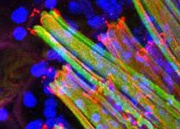
December 18, 2017: Good news for all those who would like to get a quick overview of the neuroscientific research sector in Freiburg. The Bernstein Center Freiburg has created a "Landing Page" to be found under www.neuro.uni-freiburg.de.
In Conversation: Neuroscience meets Art
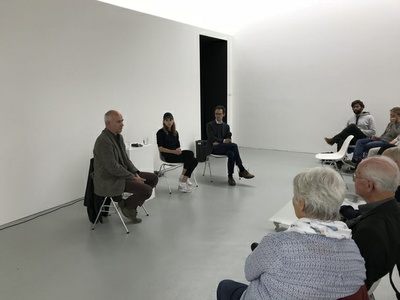
October 18, 2017: Uploading the brain to a computer - is this possible? This was the theme of a discussion between Prof. Stefan Rotter, Managing Director of the Bernstein Center Freiburg, and the audiovisual artist Lina Hermsdorf at the invitation of Freiburg's Kunstverein. The "Artist's Talk" is part of the current exhibition "Immortalism". Listen to the whole podcast now.
New Survey: Rhythm of Memory – Inhibited neurons set the tempo for memory processes
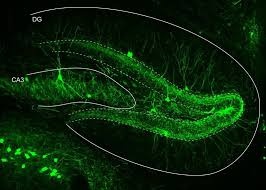
October 25, 2017: The more we know about the billions of nerve cells in the brain, the less their interaction appears spontaneous and random. The harmony underlying the processing of memory contents has been revealed by Prof. Dr. Marlene Bartos’ workgroup at the Institute of Physiology I. In a study written with a colleague from the Institute of Science and Technology Austria and published in the Nature Communications journal, she highlights the role of inhibiting circuits in the creation of high-frequency brainwaves in the hippocampus.
Lecture Series "Ways to explore the Brain"
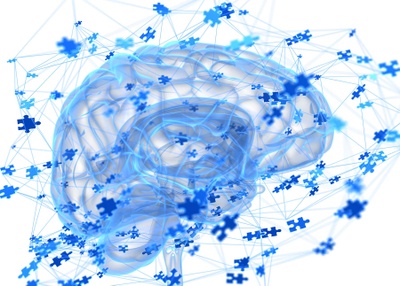
October 06, 2017: How does a rat manage to catch its prey in the dark? What happens in our brain when we formulate a sentence? Can monkeys count and why is it important that we know this? In what kind of neurological structures does anxiety manifest itself and how can it be controlled? What happens in the brain during an epileptic seizure and what does this imply for medical therapies? And how do philosophers approach brain research? These are just a few of the many fascinating questions that will be addressed by local and invited scientists from various disciplines in a clear and understandable way.
When in Striatum, Avoid Thy Neighbour
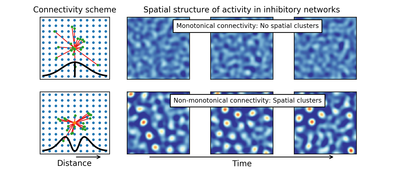
August 17, 2017: Computational models predict the spatial connection profile among nerve cells necessary to model striatal neuronal activity observed in behaving animals
"Analysis of Parallel Spike Trains" in high demand: Rotter and Grün make SpringerLink’s 50 percent most downloaded books list
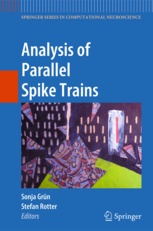
July 14, 2017: The number speaks for itself: with a total of 21,477 individual chapter downloads, Analysis of Parallel Spike Trains joins the most demanded neuroscience publications in the relevant eBook collection on SpringerLink – the download platform of the Springer Nature publishing group.
Neurotechnology on trial: Examining the usability of four implants for simultaneous recording and manipulation of neural circuits
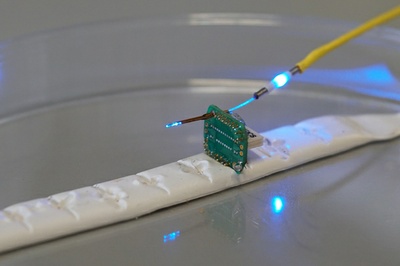
June 01, 2017: Through extensive comparative testing in living organisms a neurobiological task force surrounding Prof Dr Ilka Diester and her PhD student Stefanie Hardung was able to show, what probe design qualifies for which objective. Apart from common procedures for recording nerve signals, their research project takes into account recent manipulation techniques which, with the help of genetic manipulation and light, allow for a spatially and temporally precise intervention. The group affiliated with the Bernstein Center Freiburg and the BrainLinks-BrainTools cluster of excellence has now published their study in the journal ‚Frontiers in Systems Neuroscience‘.
In Memoriam: Michael Frotscher
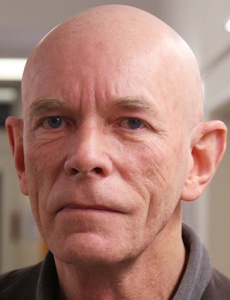
May 31, 2017: It is with great sadness that the Bernstein Center Freiburg must announce the unexpected death of its founding member Prof. Michael Frotscher. Michael passed away in Hamburg on 27th May 2017.
Desperately Seeking Rooms and Apartments!
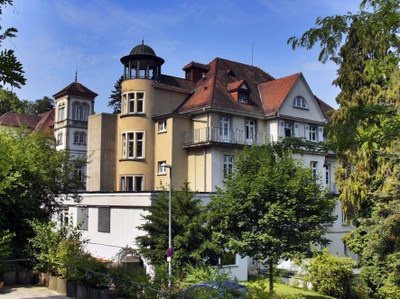
May 05, 2017: The Bernstein Center Freiburg is currently looking for rooms and apartments to accommodate students of the Joint Master Neuroscience course (JMN) in June and July.
Carola Haas receives Alfred Hauptmann Award for Epilepsy Research 2017: Best epileptological research papers of German-speaking countries awarded at trinational conference
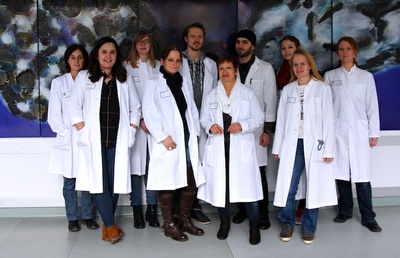
May 05, 2017: Freiburg-based neurobiologist Prof. Dr. Carola Haas was honored with the Alfred-Hauptmann-Award in Vienna in the beginning of May. The 10000 Euro price for the best scientific work in clinical and experimental epileptology is granted every two years. Haas, who is member of the Bernstein Center Freiburg and BrainLinks-BrainTools‘ executive board and whose research group resides at the Neurocenter of Freiburg’s University Medical Center, is awarded for an outstanding study from 2016. She is sharing the prize money with a team of Swiss researchers, namely Privatdozent Dr. Gian Marco De Marchis (Universitätsspital Basel) and Dr. Deborah Pugin (Hôpitaux Universitaires de Genève).
Looking back at Brain Awareness Week 2017: „Showcase for Neuroscience in Freiburg“ at Freiburg’s University Library experiences great public interest
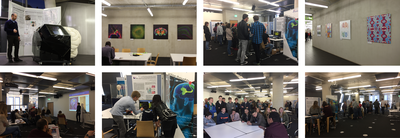
March 22, 2017: Nine school classes and more than 350 visitors in three days: this is the result of the Brain Awareness Week 2017 in Freiburg, which took place in the University Library last week. Thirteen research groups from four faculties at Freiburg University and the University Hospital participated in the event entitled “Showcase for Neuroscience in Freiburg” to give visitors an insight into the world of neuroscience in Freiburg which normally remains hidden to the public eye. For the organizers of the event, science communicators Michael Veit from the Bernstein Center Freiburg and Levin Sottru from the Cluster of Excellence BrainLinks-BrainTools, the effort has paid off.
Globalization or Regionalization? How the structural organization of neuronal networks shapes their activity patterns and vice versa
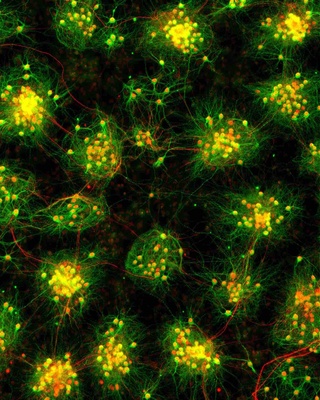
March 20, 2017: Connections between neurons determine how activity develops and propagates through a network. Their spatial range of contacts influences whether neurons only talk to neighbors or to the global network. In their recent publication, Samora Okujeni and his colleagues from the Bernstein Center Freiburg were able to show that neurons organize spontaneously to produce a mix of local and global connectivity, which increases the richness of activity patterns developing in a network. Their research provides a new perspective on the formation of growth and activity patterns during development.
The Mathematics of Neuronal Coordination
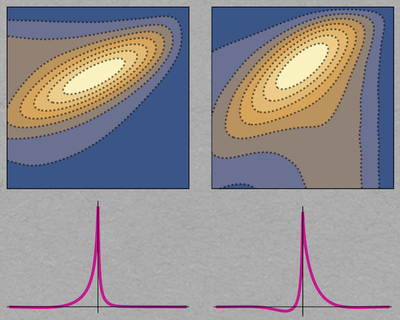
February 16, 2017: Neurons instruct other neurons to join forces and work together. But what are the exact properties of the underlying communication process? And how can it be described mathematically? In their recent publication, Taşkın Deniz and Stefan Rotter from the Bernstein Center Freiburg have now made some progress regarding these questions.
Traffic Light in the Brain: Research group offers new insights into the roles of different subareas in the prefrontal cortex
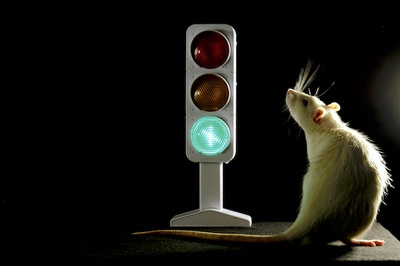
February 02, 2017: Whether the brain responds to an external stimulus or not depends significantly on the balance between areas of excitation and inhibition in the prefrontal cortex (PFC). Synaptic connections in the front of the cerebral cortex enable the brain to make a conscious decision on whether to react to a stimulus with movement or not. However, the roles of the individual regions in the PFC and how they work together in this decision-making process were unknown until now. An international team led by Stefanie Hardung from the research group of Professor Ilka Diester, a member of Bernstein Center Freiburg and the Cluster of Excellence BrainLinks-BrainTools, has now identified the roles five subareas in the prefrontal cortex play in making decisions on movement. Their results were now published in the journal Current Biology. This study may be of particular significance for the further investigation of impulse control disorders.
FRIAS Motor Control Workshop 2017
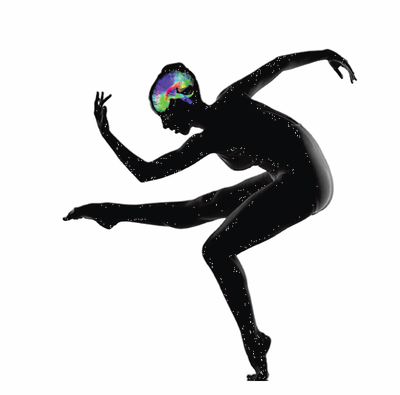
January 24, 2017: On February 9 and 10, a project group formed by BrainLinks-BrainTools- and BCF-affiliated scientists Ilka Diester, Christian Leukel, Carsten Mehring, Stefan Rotter, Robert Schmidt and Cornelius Weiller at the Freiburg Institute for Advanced Studies (FRIAS), will be hosting a workshop on the topic of „Motor Control“. It aims at bringing together experts from various fields to present and discuss recent progress in unravelling the computational and neural mechanisms of biological motor control.

